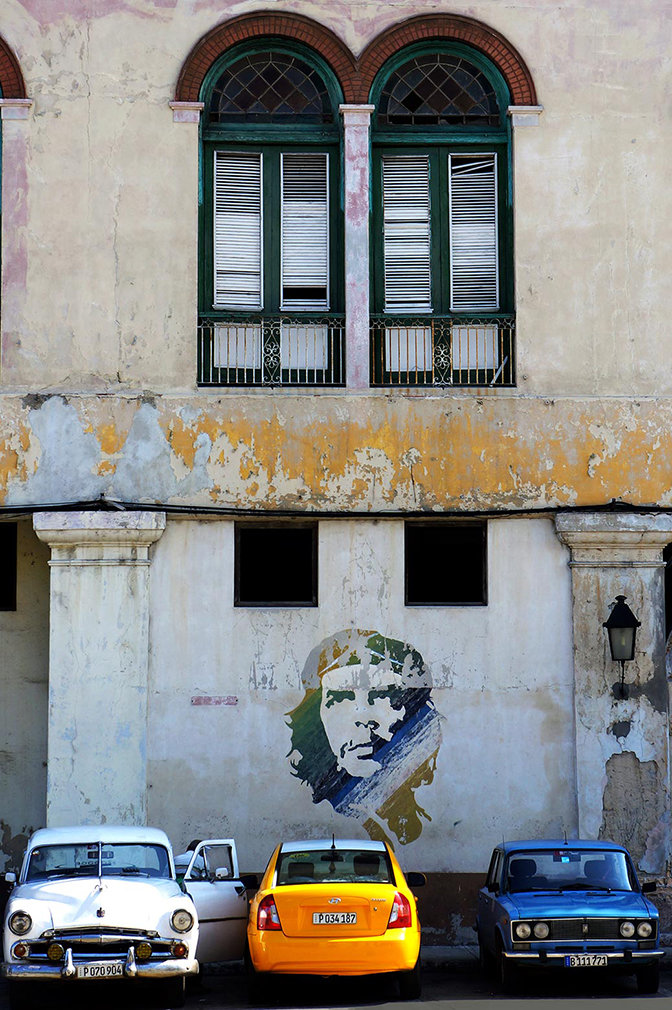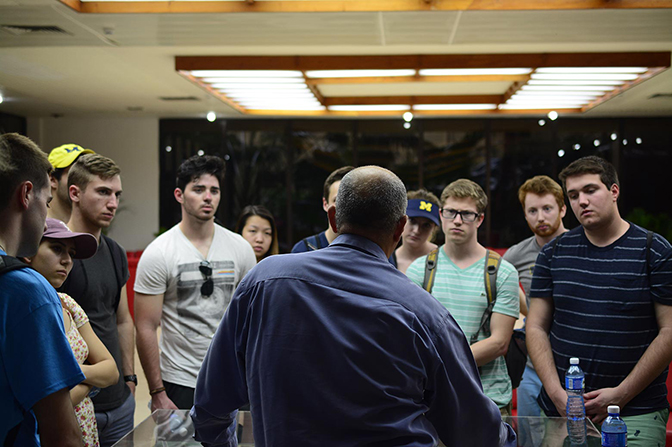
Destination Cuba
Over spring break, 2017, 22 Michigan Engineering students participated in one of the first technical interactions between a U.S. university and Cuba since the thawing of relations.

Over spring break, 2017, 22 Michigan Engineering students participated in one of the first technical interactions between a U.S. university and Cuba since the thawing of relations.

In late 2014, three days after President Obama announced a new era in US-Cuba relations, Professor Brian Love was making phone calls and writing emails – trying to start a dialogue with his counterparts at the University of Havana.
Love was eager to help Michigan Engineering develop educational and research ties ahead of the inevitable flood from other higher ed institutions. Simultaneously, he saw an opportunity to trailblaze a new model for international education at the University of Michigan – less disruptive to one’s academic itinerary than a typical semester abroad.
Over spring break, 2017, 22 Michigan Engineering students participated in one of the first technical interactions between a U.S. university and Cuba since the thawing of relations. They toured manufacturing facilities and attended lectures at the University of Havana.
The new relationship is an opportunity to establish exchange programs and research collaborations that have been impossible for more than fifty years.
“I think the attending students came away more empowered about making a difference as engineers even without a carte blanche supply budget,” said Love, a professor of materials science and engineering.
“Personally, I was struck by the variety of new thinking achieved by the students who participated in the program. I heard more than once about the ingenuity, persistence and pride exuded by the Cuban professionals we interacted with on the island.”
To prepare for the trip, Love taught in an accelerated eight-week course called “Design in a Resource-Constrained Environment in Havana, Cuba.” It included as much cultural education as it did engineering. The class explored the similarities and differences between how things are made in the U.S. versus Cuba – a country highly invested in education, but constrained by limited resources.

This experience set an application record for the college’s International Programs in Engineering. Not only is Love hopeful that the Cuba collaboration will continue in the future, but that the accelerated structure culminating in a week abroad can be a template for other study abroad opportunities – giving students a chance to have an international experience with less expense or disruption to their graduation timeline.
“This trip provided me with perspective on different ways to solve problems,” said James Mitchel, a junior studying computer science. “In an academic setting, it is easy to know the standard solution and apply it, but in Cuba the standard solution is rarely available due to the embargo and other economic limitations. So to solve a problem they have to evaluate different solutions and find the best match for their situation. This is the way problems are solved in the real world, but this can often get lost in school when we’re looking for the textbook answer.